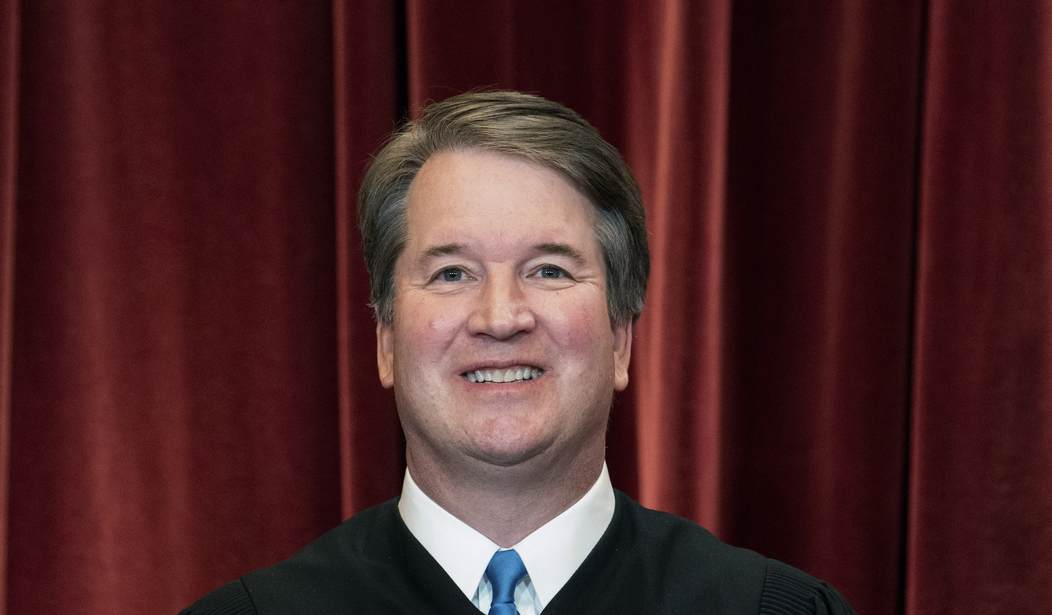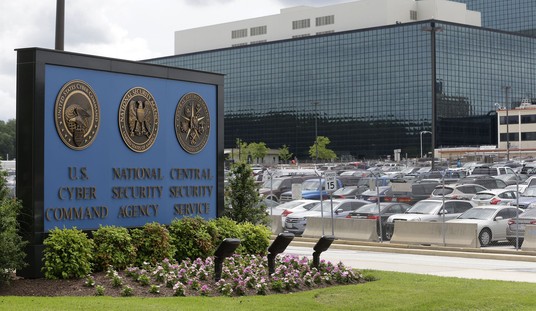Brett Kavanaugh was sworn in as a justice of the Supreme Court more than four years ago, on Oct. 6, 2018. His oath followed perhaps the ugliest Supreme Court Senate confirmation process in history -- and that, given the previous examples of Robert Bork and Clarence Thomas, is saying something. But when it was all over, Kavanaugh settled in to the court, where he has, by all accounts, performed admirably ever since.
But the people who tried to kill the Kavanaugh nomination never gave up. They never went away. They still want to end his time on the court. And now, they seem to be having a moment, thanks to a new documentary that recently premiered at the Sundance Film Festival.
The picture is called "Justice," and covers the confirmation fight in which three women accused Kavanaugh of sexual misconduct decades earlier, when he was in high school and college. There's no need to go into the details of each case, but suffice it to say that none of the accusers' stories met even minimal standards of credibility. Some were fanciful. Others were preposterous.
The "star" witness against Kavanaugh was Christine Blasey Ford, who (quoting from my coverage of the hearing) claimed "that at a high school party in 1982, when she was 15, a drunken 17-year-old Kavanaugh forced her onto a bed, tried to undress her, and, when she tried to scream, covered her mouth with his hand."
The alleged incident was 36 years in the past when Ford accused Kavanaugh, and she had no contemporaneous evidence to support it. None of the people who Ford said attended the party corroborated her story. One such "witness" told the Senate Judiciary Committee that she "does not know Mr. Kavanaugh and she has no recollection of ever being at a party or gathering where he was present, with or without Dr. Ford." In the end, the Ford accusation boiled down to a matter of faith. There was no evidence to support it. There was no reason to believe it. But some Democrats, desperate to stop Kavanaugh, wanted to believe it. So they did.
Recommended
Another accuser, Deborah Ramirez, had even less to offer. Ramirez claimed that a drunken Kavanaugh exposed himself to her at a party at Yale 35 years earlier. Ramirez admitted she remembered little about the alleged incident -- she was drunk, too -- but in the intense light of the hearings, and after consulting with a lawyer for several days, she suddenly remembered enough to go public with her story.
Ramirez's partisans, including two reporters from The New York Times, tried to find witnesses to corroborate her account, but they could not find anything beyond some people who remembered that they heard something from somebody who had heard something that might or might not have involved Kavanaugh. It didn't even reach the level of hearsay.
With Kavanaugh's final accuser, Julie Swetnick, the Democrats' effort to stop the nomination descended into farce. Coached by the now-imprisoned lawyer Michael Avenatti, Swetnick claimed that at high school parties Kavanaugh and some other boys spiked the drinks of girls and then gang raped them. Swetnick had nothing to support her sensational tale, which made even some of Kavanaugh's most impassioned attackers a little hesitant to cite her.
Viewed together, the stories of the three women added up to ... nothing. Senate Republicans pressed forward with Kavanaugh's confirmation. Kavanaugh joined the court. The world moved on.
But Kavanaugh's attackers did not move on. And now, in the documentary "Justice," they apparently suggest that there is important evidence against Kavanaugh that was never seen, more accusers who were never heard. But early word -- the film has been shown in public exactly once, and except for a few people, most Americans, including myself, have not seen it -- is that the picture de-emphasizes the Ford accusations and focuses mostly on Ramirez. According to an article in The Washington Post, the film "gives Ramirez the public platform she never got in front of the Senate."
"Justice" apparently describes how Ramirez "blocked" the memory of Kavanaugh's alleged attack, and how "details resurfaced" in the heat of the confirmation battle. What the Post characterizes as a possible "smoking gun," even though it is not a smoking gun at all, is a recording of a phone call to an FBI tip line. It came from a man named Max Stier, a former Clinton lawyer who lived in the same dormitory as Kavanaugh at Yale. Stier offered details of what he said he heard -- not witnessed -- about the alleged party incident 35 years earlier. The phone message, according to the Post, also included Stier saying he had witnessed "firsthand" a separate incident of Kavanaugh exposing himself at another party. While the phone tip is apparently the big, exciting news in the film, The Associated Press notes that "Stier was not directly interviewed for the film and declined the filmmakers' request to comment on the contents."
It appears the main point of "Justice" is that there are all sorts of credible accusations against Kavanaugh that the Senate did not investigate during the confirmation fight. But even friendly reviewers have noted that the filmmakers have not found those stories. Indeed, it appears that years of investigating, first by Senate Democrats, then by friendly journalists, and now by friendly moviemakers, have all served to illustrate how flimsy the accusations against Kavanaugh were.
But those accusations have made Kavanaugh the target of ongoing protests, and worse. There was the incident in June of last year in which a California man traveled to Kavanaugh's home in the Washington, D.C. suburbs with a handgun, ammunition, a knife and other gear, planning to kill the justice. Standing on the sidewalk outside the house, the man lost his nerve and called police on himself.
Then there are the continuing demonstrations at Kavanaugh's home, even though there is a law against such protests at the homes of federal judges. On Sunday night, protesters were at Kavanaugh's house. They chanted "Cut his time short -- a rapist should not rule the court" and carried signs that said "Rapists Off Our Court" and "No privacy for us, no peace for you."
One quick glance at the protests shows how the spectacle of the Ford, Ramirez and Swetnick accusations provided a framework for years of protests against Kavanaugh. When the justice votes with the majority to overturn Roe v. Wade, what is the protesters' reaction? He's a rapist! Get him off the court! No peace for him! It does not matter that none of it was true, that the accusations fell apart under even the most basic scrutiny. And now, when the stories should be receding into the past, Hollywood steps into try to fire them up again. "Justice," the new documentary, won't change the facts of the case. It won't make the accusers more credible. But it can keep the protests going, and it can fuel continuing efforts on the left to delegitimize the Supreme Court. That's the poisonous legacy of the Brett Kavanaugh affair.
This content originally appeared on the Washington Examiner at washingtonexaminer.com/opinion/the-never-ending-war-on-brett-kavanaugh.
(Byron York is chief political correspondent for The Washington Examiner. For a deeper dive into many of the topics Byron covers, listen to his podcast, The Byron York Show, available on the Ricochet Audio Network at ricochet.com/series/byron-york-show and everywhere else podcasts are found.)

























Join the conversation as a VIP Member